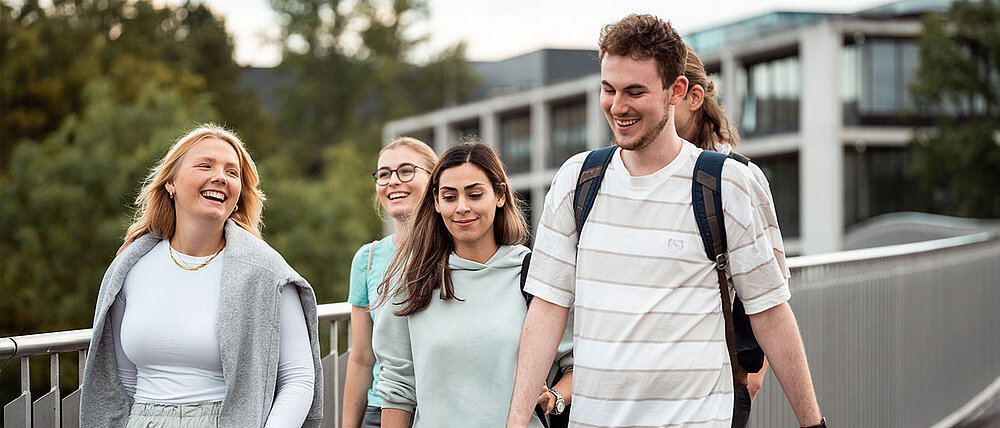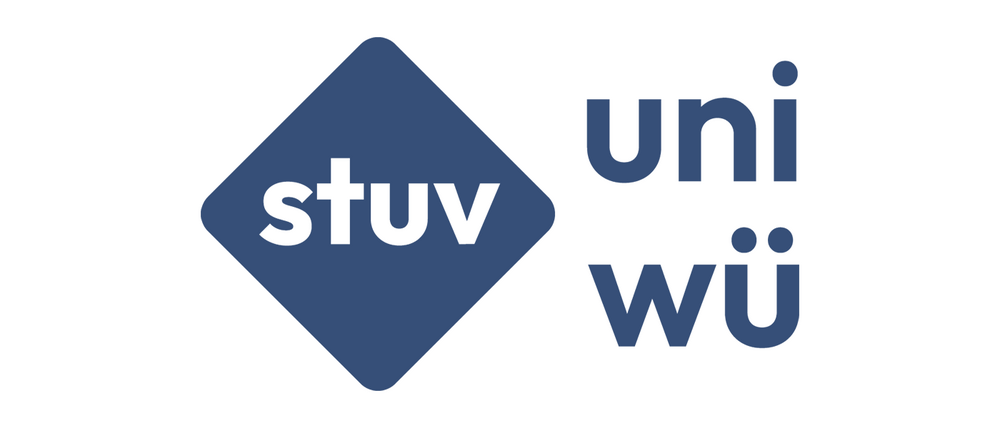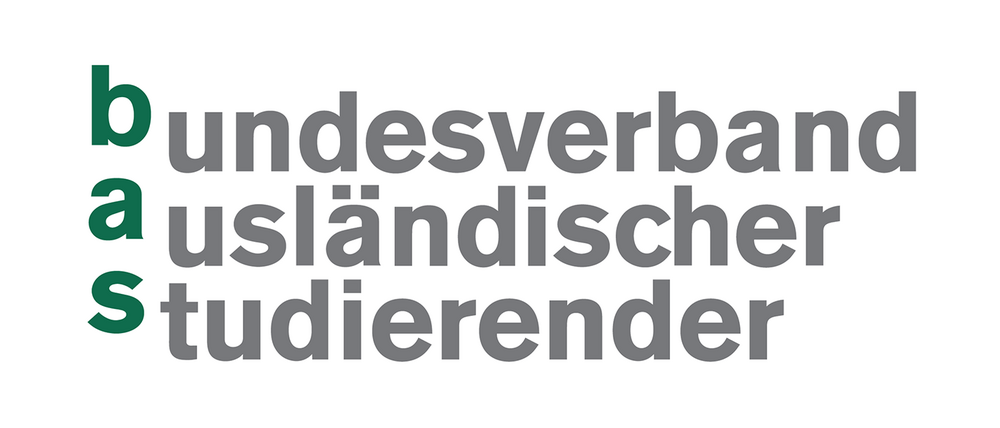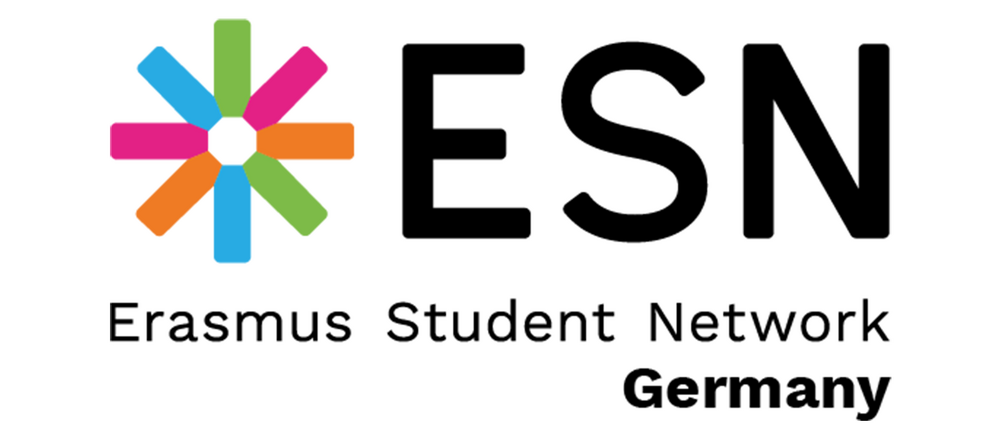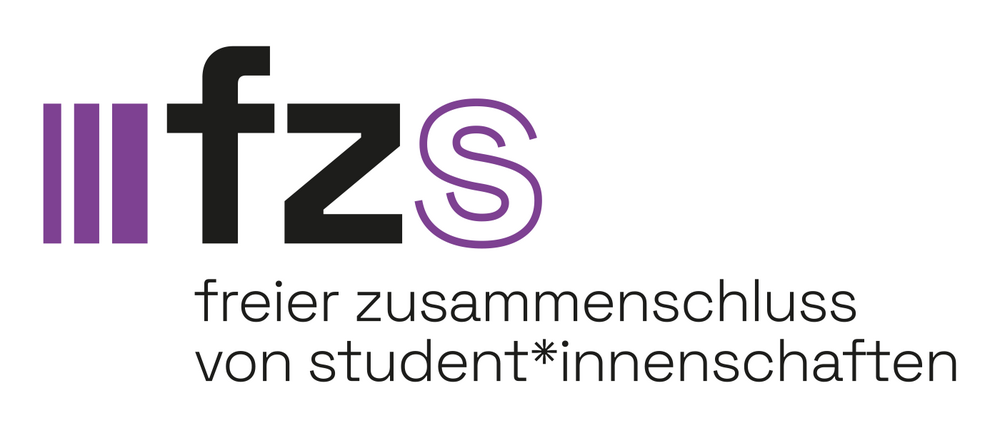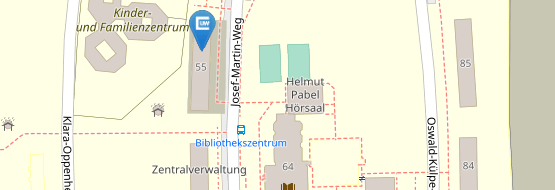DAAD Student Conference: Internationalisation of universities
Internationalisation at universities is progressing in Germany. More and more students are going abroad or coming to Germany to study, international degree programmes are being created and universities are networking in alliances across Europe.
But with these opportunities also come challenges: Housing shortages, experiences of discrimination and the questions of how international students can be integrated into the higher education system.
The conference "Internationalisation of Universities – Opportunities and Challenges for Student Bodies" offers space to openly discuss these topics, develop solutions together, present best practices and exchange ideas.
-
Representatives of student bodies
-
Representatives of student associations, regional associations and student organisations
-
International students and mobile students
-
Representatives of student bodies in the European university networks
-
Employees of universities in the field of international affairs
-
Employees of student services organisations and the DAAD
Venue: Central Lecture Hall and Seminar Building (Zentrales Hörsaal- und Seminargebäude, Z6), Hubland Süd Campus, University of Würzburg
Timetable
until 16:00
Arrival accommodation/hotels
from 16:00 (Room: Foyer)
Arrival and registration
17:00 (Room: 1.012)
Welcome and opening
- Prof Dr Paul Pauli, President of the University of Würzburg
- N.N., representative of the student bodies on the DAAD board
- Aiym Jandybayeva, BAS board member
- Jo Dietze, fzs
- Yannik Bauer, member of the student speaker council at the University of Würzburg
Online participation possible
17:45 (Room 1.012)
"Attractiveness of Germany as a study location for international students"
- Prof. Dr Doris Fischer, Vice President for International Affairs at the University of Würzburg
- Dr. Ursula Paintner, Director of Communication of the DAAD
- N.N., GEW (enquired)
- N.N., DSW StuRa spokespersons (requested)
- Moderation: Jo Dietze (fzs) and Johannes Glembek (BAS)
Online participation possible
19:15 (Room: Foyer)
Dinner
Venue: Central Lecture Hall and Seminar Building (Zentrales Hörsaal- und Seminargebäude, Z6), Hubland Süd Campus, University of Würzburg
Timing
from 9:00 a.m. (Room: Foyer)
Start of the day with coffee, tea and networking
9:30 a.m. (Room: 1.012)
Introduction to the programme in plenary, presentation of the workshops
Online participation possible
10:00 a.m.
Workshop Phase I
Workshop 1: "Structural discrimination through legal framework conditions for international students: from immigration law to admission"
- Presentation of legal and practical aspects of structural discrimination with discussion
- Leader/speaker: Johannes Glembek (BAS)
- Room: 1.012
- Online participation possible
Workshop 2: "Dealing with diversity and heterogeneity in the teaching context"
- Interactive workshop
- Leader/speaker: Younouss Wadjinny, Berlin
- Room: 1.013
Workshop 3: What does the international DAAD Academy (iDA) offer student representatives? What do student representatives want from the iDA?
- Interactive workshop
- Leader/speaker: Dorothee Lamielle und Wen-Hsuan Chiang (iDA)
- face-to-face workshop
- Room: 1.014
12:00 (Room: Foyer)
Lunch break with information exhibition of student organisations (iDA, DAAD, BAS, fzs and many more)
13:30
Workshop Phase II
Workshop 4: "Internationalisation of the student body and student representation. Internationalisation concepts, voluntary commitments and strategies for student bodies and their implementation"
- Interactive workshop with project planning approaches
- Leader/speaker: Johannes Glembek (BAS)
- Room: 1.014
Workshop 5: "International students: Support on the path to successful integration into the labour market"
- Lecture with discussion and practical examples
- Leader/speaker: Enrique Angles, M.A. / Stube Berlin
- Room: 1.013
Workshop 6: "Hidden roots, silent walls – racism in the university"
- Interactive workshop with introduction
- Leader/speaker: Younouss Wadjinny, Berlin
- Room: 1.012
- Online participation possible
15:30
Break
16:00 (Room: 1.012)
Presentation of the workshop results and discussion in plenary – suggestions for the internationalisation of universities
Online participation possible
18:00 (Room: Foyer)
Dinner and end of the official part of the programme
from 20:00
Concluding together in the Lemondrive Bar
All day (Room: Foyer)
Presentation of student groups with posters/partition walls
Venue: Central Lecture Hall and Seminar Building (Zentrales Hörsaal- und Seminargebäude, Z6), Hubland Süd Campus, University of Würzburg
Timing
from 9:00 a.m. (Room: Foyer)
Start of the day with coffee, tea and networking
9:30 a.m.
Workshop Phase III
Workshop 7: "Integration of international students on campus – practical examples of working with Erasmus and international students"
- Leader/speaker: Philipp Höhne, Erasmus Student Network Germany
- Room: 1.012
Workshop 8: "The creeping return of tuition fees for foreign students – Unsuitable means or financial injection for universities?"
- Presentation of current developments and background and discussion
- Leader/speaker: Kurt Stiegler, ABS / Karem Calgar, Netzwerk-Stopp Studiengebühren / Johannes Glembek, BAS
- Room: 1.013
Workshop 9: "Perception of the current migration discourse in Germany and effects on foreign students"
- Leader/speaker: Maïmouna Ouattara, migrant organisations
- Room: 1.014
11:00 a.m.
Break
11:15 am (Room: 1.012)
Presentation of the workshop results and discussion in plenary – suggestions for the internationalisation of universities
Online participation possible
12:30 (Room: 1.012)
Summary and outlook in plenary session
Online participation possible
13:30 (Room: Foyer)
End and conclusion over lunch
- Content
Discrimination against foreign students begins with the fact that special (legal) regulations exist for them with regard to university admission and studies, which either exclude foreign students from benefits and advantages or impose special benefits and requirements on them. These (legal) regulations express a structural, generally negative discrimination: Foreign students have to fulfil a lot of conditions for their study visa, there are special admission quotas for degree programmes with restricted access and the higher education entrance qualification obtained in the home country is often not recognised as equivalent.
- Aim
The aim of the workshop is to present the most important legal regulations, such as residence regulations and entry requirements or special admission and recognition regulations for foreign students and to work out ways of supporting foreign students. The aim is also to put forward demands to abolish discriminatory regulations.
- Target group
The workshop is primarily aimed at participants involved in counselling foreign students, but is open to everyone. No prior knowledge is required.
- Working method
After an input, the participants collect practical examples and work out support options and demands in small groups.
- Workshop leader
Johannes Glembek is the managing director of BAS and has worked as a legal counsellor for foreigners at the AStA of Trier University. His work focuses on residence and migration law as well as university admission and capacity law.
- Contents
Every day at universities, people from diverse backgrounds come together to research, learn and work. Diversity as a concept stands for the appreciation of diversity and sees it as an important resource. This workshop will therefore be accompanied by the guiding question of how respectful and appreciative interaction between all university members can succeed. To this end, we will examine various dimensions of diversity together and reflect on measures to reduce discrimination at universities. A central part of the workshop will be working on practical cases from your teaching as well as developing individual strategies and options for action.
Topics
- Gaining knowledge about the values of international students
- Reflecting on your own unconscious bias
- Raising awareness of racism and other forms of discrimination ("wokeness")
- "Cancel culture" at universities: Assertion or reality?
- Aim
The aim of the workshop is to initiate a change of perspective with the help of a variety of exercises and reflection sequences. The aim is to critically scrutinise one's own thinking and actions, particularly in relation to the university context, and thus sensitise participants to diversity-specific dimensions.
- Target group
The workshop is aimed at all interested participants, especially those active and interested in teacher training programmes.
- Working method
In the workshop, content will be developed together in working groups and in plenary sessions. In addition, inputs on the workshop questions from current research will be given.
- Workshop leader
Younouss Wadjinny is a graduate mathematician, trainer in academic adult education and was active for several years in the AStA of the University of Braunschweig in the foreigners' department, as well as co-founder of the "Gauss House", which received the "Prize of the Federal Foreign Office for excellent support for foreign students" in 2019.
- Contents
The international DAAD Academy (iDA) is a working unit of the DAAD. Its aim is to support German universities in the design and implementation of their internationalisation processes. The iDA responds to current relevant topics in the internationalisation discourse and to the needs reported by universities. Our training programme is both target group-specific and topic-oriented. For the target group of student representatives, we are developing a new information and networking seminar, which will be piloted next year.
- Goal
The aim of the workshop is to gather the challenges related to the internationalisation of higher education institutions that you encounter in your committee work. In addition, the iDA's training programme will be presented and compared with your expectations.
- Target group
The workshop is aimed at all interested parties, especially members of student representatives who are committed to internationalisation at their universities and would like to actively shape it.
- Working method
Participants will develop content in working groups. There will also be input on the iDA's offerings.
- Workshop leader
Dorothee Lamielle and Wen Chiang are employees of the iDA. There, they are responsible for the design, organisation and implementation of various training programmes.
- Content
On the one hand, the workshop deals with fields of action of student bodies in which internationalisation and integration play a role. Be it questions of counselling international students and their integration into the work of the student bodies or Eurocentric teaching content; be it addressing international students and motivating them to participate in the student body and creating the corresponding prerequisites, such as language requirements or dealing with internationalist topics.
Once the fields of action have been identified, the current status of these in the student bodies will be analysed. Where is there still a need for action in student bodies and where are there examples of best practice that can be transferred?
- Aim
The aim of the workshop is to present the most important legal regulations, such as residence regulations and entry requirements or special admission and recognition regulations for foreign students and to develop ways of supporting foreign students. The aim is also to put forward demands to abolish discriminatory regulations.
- Target group
The aim is (a) to create exemplary project plans for the development of customised integration/internationalisation concepts for student bodies. The aim is also (b) to enable student bodies to develop and implement self-commitments to internationalisation in an adapted and student body-specific manner.
- Working method
The workshop will be a moderated workshop that relies on the active participation of the participants, e.g. in partners and small group work. Participation through consumption only is not recommended.
- Workshop leader
Johannes Glembek is Managing Director of BAS and has been active in various student and academic self-government committees at student council, university, state and national level. He has worked on the National Integration Plan and its implementation concept, the Federal Government's National Action Plan for Integration, in the fields of science, higher education and education.
- Contents
According to DAAD forecasts, around 405,000 international students are currently studying in Germany, of which around 65% of international students who wish to graduate want to stay in Germany: 25,000 graduates are already entering the German labour market every year. International students are often not sufficiently aware of the opportunities available to them to stay in Germany after their studies and start a career here. Career counselling should therefore be intensified throughout their studies and early contact should be encouraged. More measures are needed for the transition to the German labour market. However, there are still some major obstacles that prevent international students from becoming the professionals of tomorrow. One of the biggest obstacles is the transition to the labour market.
Topics
- Continuing education programmes to facilitate the transition from university to working life, such as German courses, job application training and career counselling.
- Support during the degree programme: How can continuous support be provided for initial contact with future employers? - From internships in cooperation with companies to career services and other programmes (start-up support).
- Support programmes for universities to facilitate the successful transition of international students into the labour market.
- Aim
The aim of the workshop is to shed light on how a successful transition of international students into the labour market can be supported.
- Target group
Participation does not require any prerequisites.
- Working method
Input followed by joint discussion and topic development.
- Workshop leader
Enrique Angles, M.A. has more than 10 years of experience in international cooperation and works as a freelance Spanish interpreter for the Federal Office for Migration and Refugees (BAMF) with refugees. He is an alumnus of the STUBE Berlin study support programme for foreign students from Africa, Asia and Latin America. He has worked as a research assistant at the University of Osnabrück and the Technical University of Dortmund.
- Contents
Universities are places of diversity: students come from different linguistic, cultural, social and biographical backgrounds. Internationality and diversity are usually promoted by universities and university management as a flagship and marketing argument. Unfortunately, however, the reality is sometimes quite different. People experience racism and discrimination, even to the point of assault. University management often fails to take action and does not deal with the problems proactively, but instead ignores them or plays them down.
Diversity shapes everyday student life – in seminars, on campus and in student engagement. It is not only about dealing with differences, but also about how diversity can be used as a resource for solidarity, innovation and cooperation. What opportunities arise, what obstacles exist – and how can we develop solutions together? The workshop offers a safe space for exchange: What experiences do we have with racism and discrimination in our studies?
- Goal
The aim is to share experiences of racism and discrimination, develop strategies and come up with concrete ideas for anti-racist work and discrimination-free spaces that can be incorporated into student engagement – whether in student councils, initiatives or university policy committees.
- Target group
The target group is primarily international students who have experienced racism and discrimination.
- Working method
In the moderated workshop, after a brief introduction, participants will share their experiences and work out solutions in a group discussion.
- Workshop leader
Younouss Wadjinny is a graduate mathematician, trainer in academic adult education and was active for several years in the AStA of the University of Braunschweig in the foreigners department, as well as co-founder of the "Gauss House", which received the "Prize of the Federal Foreign Office for excellent support for foreign students" in 2019.
- Contents
How can universities and student bodies actively integrate international students into campus life? Using practical examples from the Erasmus Student Network (ESN) Germany and its local associations, different approaches are presented that show how exchange and integration could be organised. Together, we will look at what kinds of events are useful, where potential obstacles lie, and which event ideas could work for you.
- Aim
The workshop aims to enable participants to develop their own effective formats for integrating international students. The aim is to raise awareness of different needs and at the same time convey concrete ideas and good practices that can be easily transferred to your own campus.
- Target group
Student bodies, student initiatives and all students who want to promote international encounters and integration at their own universities.
- Working Method
Interactive workshop with practical input, group work and discussion. In addition to short inputs on best practice examples (e.g. welcome weeks, tandem programmes, cultural exchange formats), participants work in small groups to develop their own ideas and reflect on them critically.
- Workshop leader
Philipp Höhne (Erasmus Student Network Germany)
- Contents
Now that universities in Saxony can set tuition fees and Baden-Württemberg has introduced tuition fees of 1,500 euros per semester for foreign students as of the 2017/18 winter semester, Bavaria has also made it possible for its universities to charge tuition fees for foreign students since 2023, with the Technical University of Munich, for example, making use of this option and charging up to 6,000 euros.
While the black-yellow state government in NRW initially rejected plans to follow Baden-Württemberg, NRW now wants to follow suit and allow RWTH Aachen University to charge tuition fees.
The first part of the workshop will provide a brief overview of the introduction of tuition fees against foreign students and their history / development. In the second part, (right-wing) narratives used to justify tuition fees will be discussed and refuted. "Foreign students and their parents study for free and pay no taxes", "In the USA, foreign students pay several 10,000 US$ fees", "We cannot educate the world for free" and similar "arguments" will be critically analysed.
- Aim
The aim of the third part of the workshop is to develop strategies and ideas for actions to combat resistance to the continued introduction of tuition fees. What can be done "locally", in the federal state and nationwide against the return of tuition fees and their definitive introduction. The third part is about concrete actions and networking. The aim is also to develop strategies to gain various allies beyond the "usual" organisations that exert influence on politicians and decision-makers.
- Target group
All those interested in the topic are addressed, especially student representatives from the affected federal states.
- Working method
Interactive workshop with brief input on the development of the current introduction of tuition fees and the situation in the affected federal states (Saxony, Baden-Württemberg, Bavaria and NRW)
- Workshop leader
Kurt Stiegler (ABS), Karem Calgar (Netzwerk-Stopp Studiengebühren), Johannes Glembek (BAS)
Karem Calgar and Johannes Glembek (BAS) organise the Netzwerk-Stopp Studiengebühren and have initiated various actions, especially in Baden-Württemberg. For example, a state-wide petition or joint discussions with those responsible. One of the things they have achieved is that Bündnis 90/Die Grünen, who introduced tuition fees, are calling for their abolition in the upcoming election campaign. The ABS is the nationwide platform of various student organisations against tuition and education fees.
- Contents
‘Unregulated migration’, ‘tightening asylum policy’ and ‘deportations’ are just three buzzwords in a debate on migration policy that, at least since the last federal election campaign, has dominated public discourse on migration and immigration and stirred up sentiment against people perceived to be migrants. How does this discussion and, in some cases, incitement affect international students and their situation? How do they feel when they are recruited by universities on the one hand and then have to live in a society that is increasingly opposed to migration on the other?
- Goal
The current political debate on migration and its impact on international students will be analysed and counter-strategies developed.
- Target group
The workshop is open to all participants of the Internationalisation Conference.
- Working method
In addition to an introduction, the workshop will feature an interactive discussion.
- Workshop leader
Maïmouna Ouattara has been active in various student representative organisations and is committed to supporting international students. Among other things, she has served as the international affairs officer for the AStA at the University of Potsdam, spokesperson for the BAS, and student representative on DAAD committees. She currently works primarily in migrant self-help organisations, for example as project coordinator at moveGLOBAL e.V., an umbrella organisation for migrant organisations, and as a specialist promoter for migration and development. She is active in the fields of global interrelationships and justice, migration, refugee work and development work.
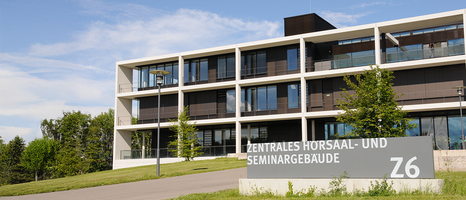
The conference will take place in the Central Lecture Hall and Seminar Building (Zentrales Hörsaal- und Seminargebäude, Z6) on the Hubland Campus. The best way to get to the conference rooms by bus from the main railway station is to take lines 14, 114, 214 and 29.
If you are travelling by car, we recommend driving from the street "Am Galgenberg" via "Am Hubland" into "Theodor-Boveri-Weg", where there are plenty of parking spaces right next to the conference rooms.
Rooms have been reserved for the conference at the Babelfish Hostel directly at the railway station, but unfortunately we cannot cover the costs for accommodation. You can also organise your own accommodation. There are a few things to consider in order to access the contingent:
Booking:
Please send your enquiry by email to kontingent@babelfish-hostel.de.
Be sure to include the reference "Internationalisation 2025" in the email.
The following information must be included in the email
- Full name
- Your address
- Room preference
- Arrival and departure date
Available rooms:
- 10-bed room: 10 beds available, € 23.00 per bed/night
- 6-bed room: 12 beds in 2 rooms, € 27.00 per bed/night
- 4-bed room mixed: 4 beds, € 32.00 per bed/night
- 4-bed room female only: 4 beds, € 32.00 per bed/night
- 6-bed room private ensuite: 1 room, € 162.00 per room/night
- Double room private ensuite: 1 room, € 74.00 per room/night
Important information:
- The contingent is reserved until 10.10.2025.
- Rooms can be cancelled free of charge up to two days before arrival.
- Breakfast can be optionally booked for € 7.90/day
The catering at the conference will be vegan/vegetarian. It will be possible to cater exclusively for vegans. Please let us know of any allergies and/or food intolerances when you register. Packed lunches will be provided for your journey home on Sunday.
General childcare is not planned. However, if childcare is required, please let us know when you register.
For better planning and organisation of the event, prior registration is required for participation in the conference. Please also enter here which workshop you would like to attend. Please note that it is only possible to participate in one of the three workshops per workshop phase, as they overlap within one phase.
Privacy policy and consent to data collection
Data protection is particularly important to the University of Würzburg, which is why we are happy to fulfil our obligation in accordance with Art. 13 para. 1 of the General Data Protection Regulation and provide you with the following information on the processing of your data.
The controller for data processing is the University of Würzburg, Sanderring 2, 97070 Würzburg, e-mail: info@uni-wuerzburg.de. If you have any questions about data protection, you can contact the University's data protection officer, Sanderring 2, 97070 Würzburg, e-mail: datenschutz@uni-wuerzburg.de.
The personal data collected from you will be used exclusively for the purpose of participation in the "DAAD Student Conference". We are authorised to do so in accordance with Art. 6 para. 1 letter a GDPR. In the event that you participate in hybrid parts of the conference, we would like to point out that we use ZOOM here. You can find more information about ZOOM at: Privacy policy and information on data processing including information from end devices (German only).
Your data will be stored at the University of Würzburg and deleted after the end of the conference.
Further information about your rights regarding the GDPR can be found here: https://go.uniwue.de/betroffenenrechte (German only)
By submitting your data, you declare that you have taken note of the privacy policy and agree to it.



